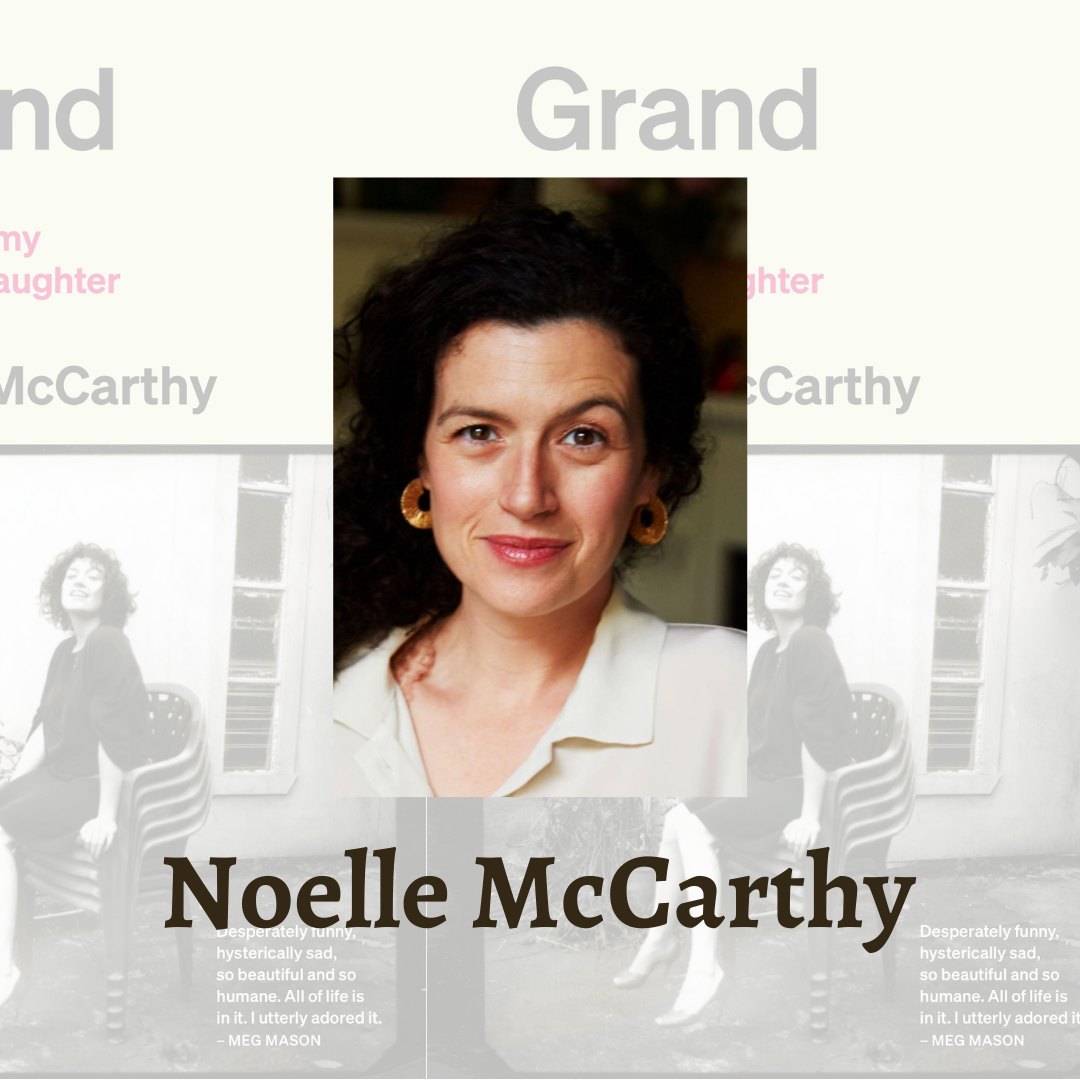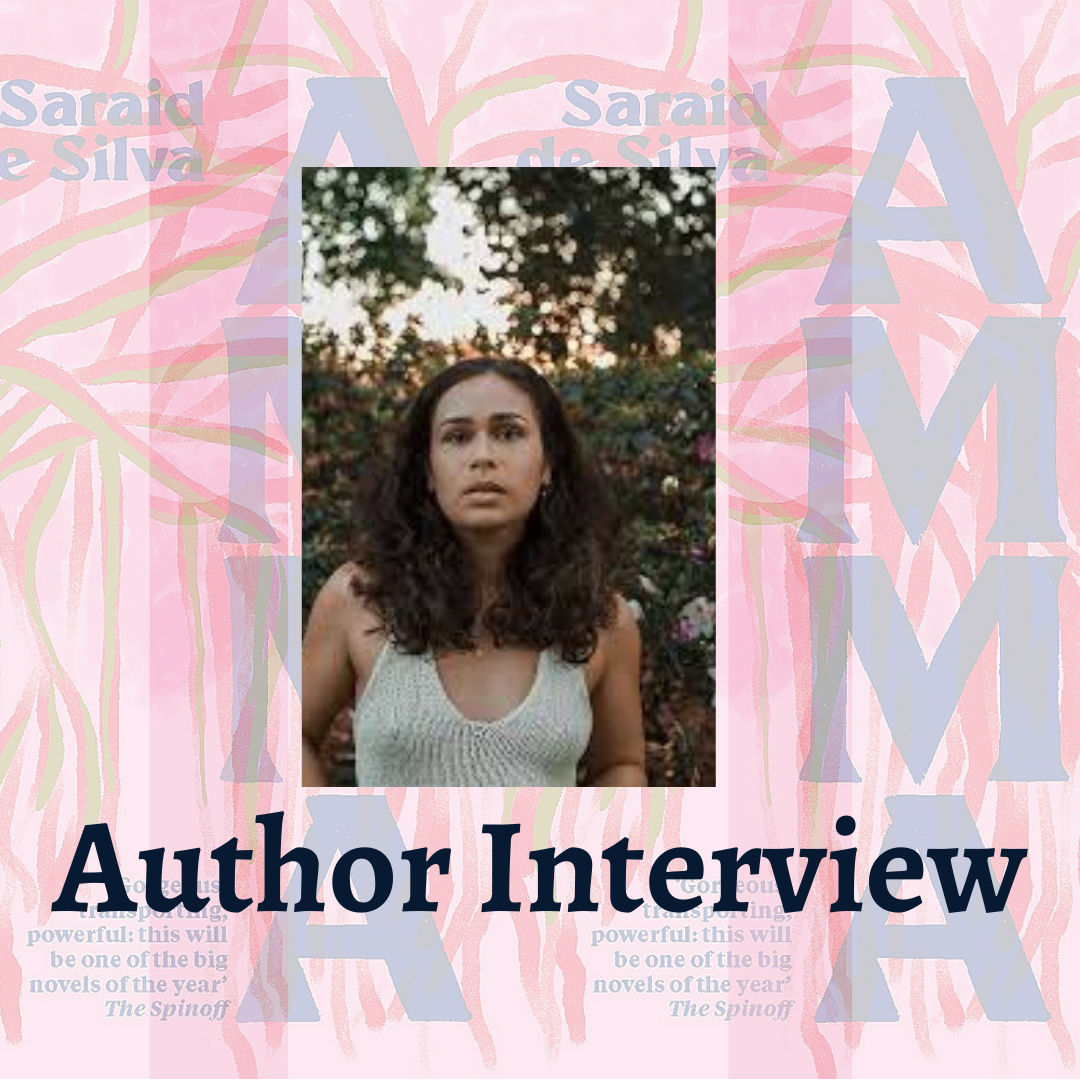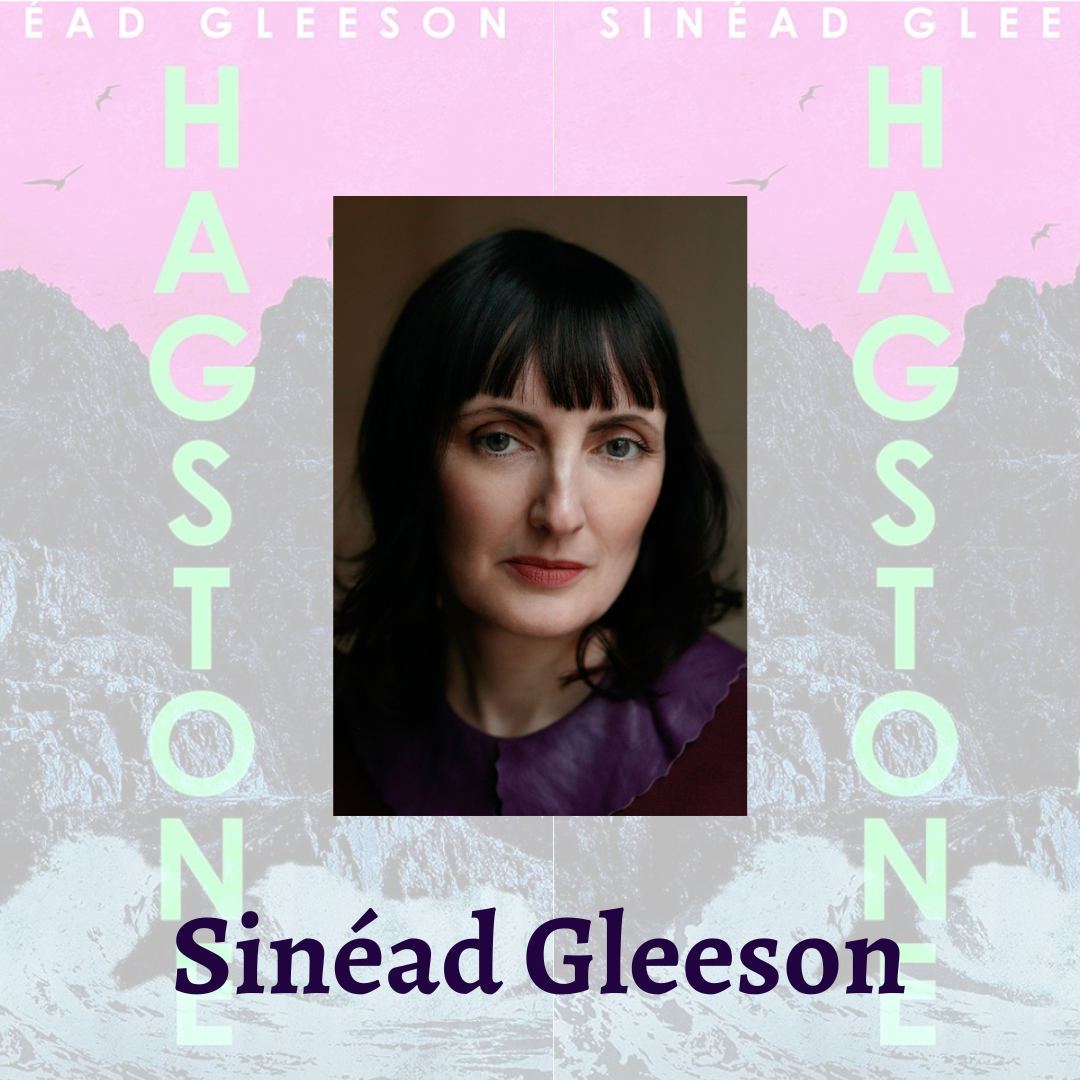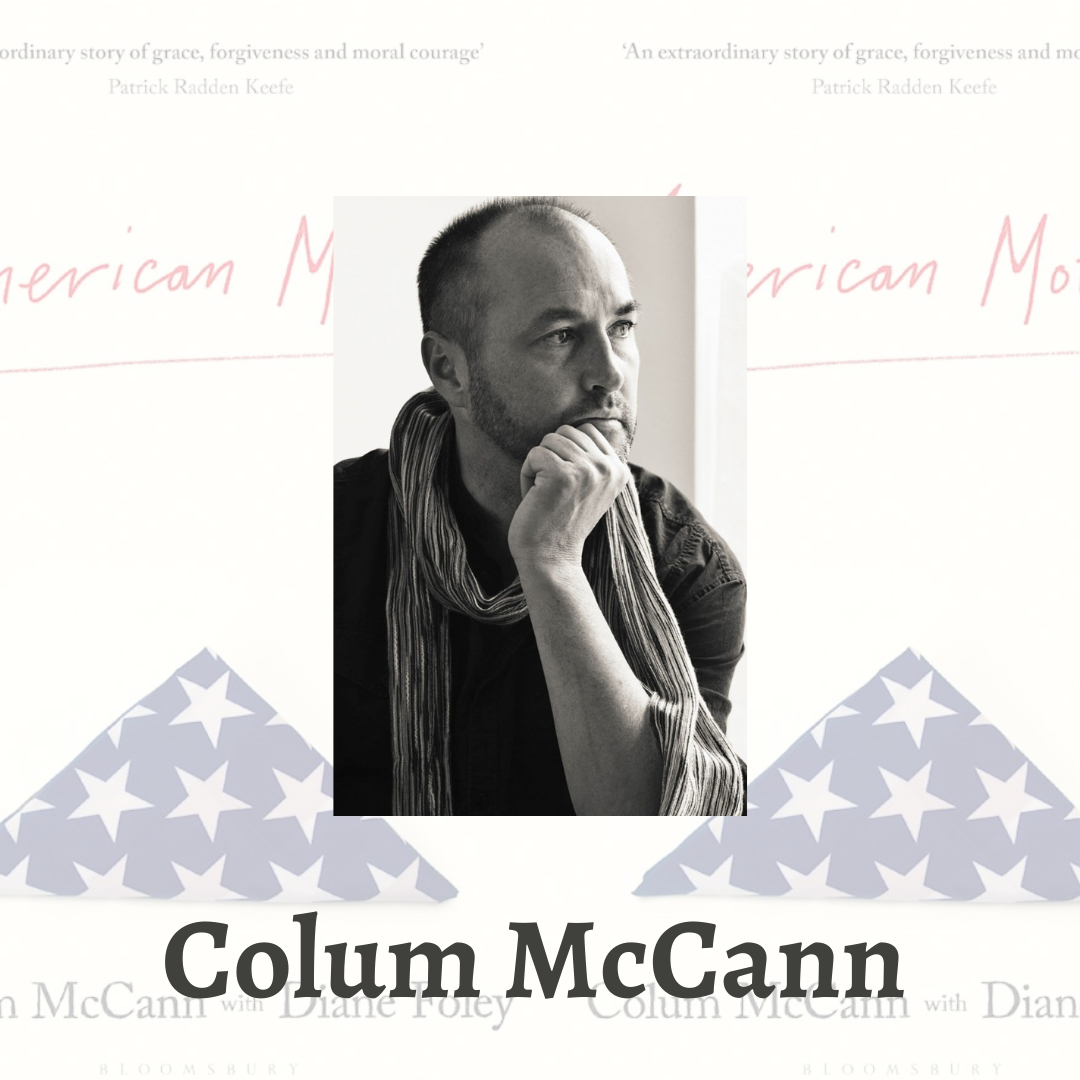Noelle McCarthy in conversation with Unity Auckland's bookseller Chloe Blades
 14 Jun 2023
14 Jun 2023
Was there any apprehension memorialising your relationship with your Mum, her alcoholism and yours?
God yes, but that didn’t come until after I’d finished writing Grand. I wrote it fast, because I was focused on the writing and I wasn’t thinking about what it would be like afterwards and how it would be received. This stuff was at the front of my mind, consuming me. I’d started making notes on and off for a while and I started writing while my mother was still alive. It was only afterwards I thought oh god what is releasing this out into the open going to be like?
I actually felt like writing about family was a bit uncool, or that it had already been done so much better by writers who came before. I thought: “If I can’t be David Sedaris, then I don’t want to do it!” But my husband came to my family as an outsider and the first time I took him to Ireland 8 years ago he told me : “You need to write about these guys. They’re rich territory and good characters.”
And then, when my mother was diagnosed with lung cancer, life just shifted overnight. Everything became important, and unforgettable, in that way things do, when you know your life is about to change.
As to the actual process of writing the manuscript, what happened was, at the end of 2019, I entered the Fish Writing Prize writing competition in Ireland and submitted 4,000 words in the short form memoir category. It was the catalyst for unlocking the memories. By January 2020, my mother was getting sicker and I went to Ireland in Feb. My mother died in March, and by then, we were in lockdown. I found out that I won the writing competition in April, and it was a spur to keep going.
Did members of your family have a different memory of the past to you?
I gave a draft of the manuscript to my Dad and he said : “I’ve never drunk 15 pints in my life, change that.” But aside from that, he didn’t question anything. There have been relatives who are like, “really? Did that happen?” That was part of the reason I put the note about fallibility of memory in at the back. Things did happen, the facts are there- I have photos and videos to prove it, but there may be things I remember differently to everyone else. And I don’t want to to say that my version of each event was the right one. All of my family, we all had different relationships with my mother. They would have a different story to tell. When I gave the manuscript to my sister I was nervous, it was very much a first draft. But she said, “I can hear Mammy - I can hear her voice.” That was the best compliment. That affirmed, for me, all the things I made the decision to write about in Grand
How did it feel knowing your sister was going to read a version of her that you’d been critical of?
That was one of those things that I was nervous sending to her but, you know, it’s not a surprise, she knows she hates wearing shoes! We laughed about it, she was like, shut up about the shoes Noelle, but it was fine. I mean, that’s the nature of family, we love each other, but you’re critical of your sister as well.
At any point did you have to change your expectations and idea of what a Mother is? Has this impacted how you want to be a Mother?
It’s really hard to be a present parent when you have a dependency on alcohol. You’re not there. You can’t do it. One of the great joys of my life has been being in recovery and being present as a parent - it just makes everything possible. And that wasn’t the story with my mother. She always wanted to be away.
I was surprised by the number of people who related to that story, with a parent. My mother’s drinking. So many people want to talk to me about their own experiences of that. I didn’t want to call my mother an alcoholic, or label her, because she didn’t call herself that.
Different tones, from joy to sorrow in Grand, can you talk about those shifts, how and why you wrote it like that?
I wanted to explore the beauty and depth and difficulty of life, in Grand. When I started writing it, my mother was sick, probably dying, and I felt uncomfortable and lonely in the world. And that’s where I was writing from. Wanting to explore that perspective. And then, once I started writing, I realised that I also felt lost as well, as a teenager- I didn’t know what I was supposed to be doing. What the right way is, to be in the world. But,I have always had good times. Like, even in the depths of terrible times, things that would happen that were funny, or stupid, or remarkable. I didn’t want any account of my life to be just one colour – just like my mother. She was terrible but at the same time wonderful.
Can you tell us a bit about 1970s Ireland and what that meant for your Mum and the two babies she had before you?
My mother had her first child in the 1970’s when having a baby outside of marriage in Ireland carried so much shame and stigma that it was effectively unworkable for women in her position to keep their babies.
Now, in the 21st century we know more about the system of Magdalene Laundries and so called “Mother and Baby Homes” that separated women from their babies, and from the wider Irish society, how thousands of those infants were illegally adopted, or died of malnutrition and neglect.
Bessborough in Cork City was one of the biggest homes and it was still operating when my mother first got pregnant in the early 70s. Thankfully she was sent to Dublin to have her baby, and not sent there. But that trauma of what was essentially forced adoption, in secret, with all the details covered up, was part of the story for my mother and other Irish women of her generation.
It’s a national scandal and a national trauma, a consequence of the control exerted on the Irish state by the Catholic Church, focalised through women's bodies and passed down through the families of those women affected by it across the generations.
Even if that baby had lived the odds are he would have been adopted. She wanted to keep him. She didn’t want to give either baby up. She confounded me and frustrated me but this story is about what made her and what happened to her and other women.
Why do we let women down when they’re at their most vulnerable? Why isn’t there more child care, better policies, still so dangerous in certain parts in NZ society?
I felt Republic of Shame: How Ireland punished women by Caellin Hogan was an important book to read.
On Sobriety and Alcoholism
Drinking is and was a challenge in my life, nobody gets everything they want and sometimes things are really really hard and unfair. In terms of writing, I guess, unsurprisingly, I’m not as interested in the easy stuff. Tension enlivens. It’s a bit of grit that makes the pearl. But you know, I feel like a lot of the stuff I write about in Grand, I’ve had a go at working through now, I’ve had some distance from that time. I couldn’t have written this when I was getting sober. I found life exhausting. I was learning to pray- at the Sky Tower, the way I describe in the book- and I was tired and freaked out.
I was going to meetings, so I had a 12 step group and when the meeting finished at 8pm, some kind person would say to me “Ok, you’re done for the day. Just go to bed now.” And I’d do that, I’d just have a cry and go to bed. It wasn’t fun, but it needed to be like that, I think at the start. And then, it got easier, as I had friends and I was developing faith. Life wasn’t getting worse like it had been when I was drinking, it was slowly getting better. I stopped drinking in the winter in New Zealand and by the time I was 5 months sober there was more light in the evenings. It was little things like that. You start to feel like things are conspiring to help you out. I started looking better, as I was sleeping better, so it was easier to get up in the mornings. It got worse before it got better, but then it got better as well.
Was writing Grand healing in any way?
I’d already healed, in a way. I’d been sober for a decade. When I started writing there was unfinished stuff which came out hard on the characters, but I worked on that too, you know looking at things from different perspectives, imaginatively, and I think that helped. I hope that the characters came out as well-rounded, multidimensional characters. I worked hard at that.
I still journal and do a lot of processing there, but I wouldn’t publish it. By the end of Grand I felt like I had a new sense of relationship with my mother, it was illuminating. There were things I hadn’t thought about, or talked about for 20 years- like her walking up and down that hill to get me a place in my secondary school and now that I know the lengths I’d go to for my own daughter – I can really feel the love in that. She did love me. I felt it when I wrote it You get little moments of grace like that.
What are the biggest lessons you’ve learned about heavy drinking and sobriety?
It’s ongoing. And I’d hate to act like I think I’m an expert, the only experience I’ve lived is my own. When I first stopped drinking, 13 years ago this July, I was seriously having problems- I was trying to find somewhere to live, isolated, my health was bad, trying to hold down a job. I had incredible anxiety as a result of drinking. In the short term, even though the anxiety took a long time to lift, my life still became measurably better because I wasn’t drinking- the complication of the alcohol in my life wasn’t there.
Nowadays, being present is the biggest factor, the capacity to deal with life a bit better. I’m amazed at how much I can cope with. On a day to day basis, if I don’t drink I feel I can cope, and my ability to have a relationship with others is there.
I get to take care of myself on the good days and the bad days. I have the capacity to be useful and productive. I always wanted to write.I have a lot of respect for people who write books, even when I’d finished Grand, I couldn’t believe I’d written it. I’m grateful for what being in sobriety has allowed me to be. I couldn’t have got married, I couldn’t have showed up for a grown up relationship . I was so isolated at the end of my drinking, I didn’t let anyone in.
It’s a gorgeous cover photo, what’s the story behind it?
It’s a photo of me, taken in 2005, when I was at bFM. I love how lots of people think it’s my mother- we’re doppelgängers – there’s a young woman who’s looking pretty free, balancing on a whole load of plastic chairs. It’s me, but it could be either of us. And as the story is about both of us it made sense to use it as the cover.
It’s from a photo shoot and I’d sent it to my Mum and forgot about it. My sister sent me a whats app of it when she found it as she was cleaning out my mothers bedroom. I sent it to Claire (Murdoch- my editor at Penguin) and she said how quickly can we get this. My sister couriered it- but during Covid, so with global shipping delays and all that, it arrived maybe like, a week or so before the book went to print.
I love the connection this photo gives. I went to NZ and ran away from her but we kept our connection, we were still connected.
You said you have good and bad days in your sobriety. Do you do any small acts each day that bring you joy?
Coffee first thing, a run or a walk to get my head clear, writing, reading and listening to my favourite songs. And texting and whatsapp’ing funny nonsense with my sister and my brothers and my friends.
How are you doing now? What do you think you'll do next in the realm of books?
Im good. Im sad. I lost a dear friend two weeks ago and the loss is raw. But it was a beautiful friendship, Janet kept me awake to everything there was to marvel at and laugh at and enjoy, and she challenged me to make time for my friendships when i was kidding myself I was too busy-and even in death she’s showing me that there's no such thing.
I'm trying to be grateful for my life and the people who make it so happy and rich, and even in the winter, getting out and finding the sun. I’m writing, I haven’t stopped, I don’t know what it is yet, but theres more of me and my life in it, I seem to be in the groove of remembering and revisiting different parts of my life now.
You’ve got a podcast, Tell Me About It, what’s that about?
I’ve been loving doing Tell Me About It, a Stuff podcast about feminism and journalism that I co-host with Kirsty Johnston and Michelle Duff. We just finished our first season of interviews, talking about everything from the rise of online misogyny, to how fucked our child support system is, the current apocalyptic roll back of reproductive rights in America, whether your workplace should actually bite the bullet and have a crying room, so we don’t have to keep locking ourselves in the toilets- a lot of the stuff Kirsty and Michelle come up against in their daily work as reporters, all the insidious tentacles of patriarchy and how it impinges on our lives. Mostly I love interviewing cool people who are actually fighting the good fight, and making change, and also being with two women who make me laugh, even when it feels like the world’s in flames.

Saraid de Silva in conversation with Lisa-Jean O'Reilly from Unity Auckland
28 Apr 2024I also learned that writing a novel requires a lot of your own strength and patience, but also the grace and patience of the people around you. At times I really had to isolate myself to do this, and I’m grateful the people I love gave me that space.


Sinéad Gleeson in conversation with Lisa Jean O'Reilly from Unity Auckland
30 May 2024I can write anywhere, and I did used to have a Virginia Woolfe-ian room of my own, but it’s now my son’s bedroom. So I write at the kitchen table, and I write within the chaos and structures of the house.


Colum McCann in conversation with Lisa Jean O'Reilly from Unity Auckland
21 May 2024Diane went up to him and said, “Hello Alexanda, I’m Diane, it’s nice to meet you,” and she wasn’t lying. She wanted to be there, and she knew that her son would have wanted her to be there, and her son would have done the same thing. And she also wanted Kotey to know, Alexanda Kotey to know, what he had taken away from the world. And so, it was a powerful moment, and I was a witness to it, and I had to become a ventriloquist to the moment, and that was my job.

